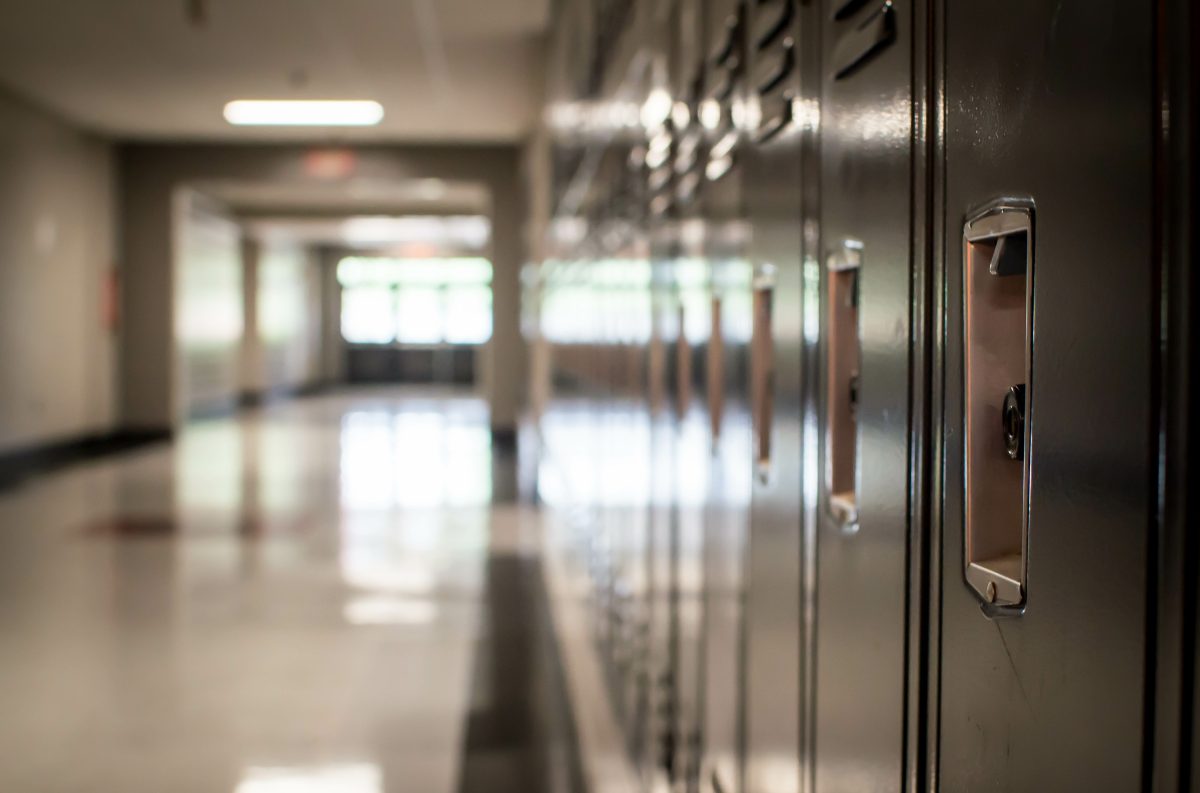Overview:
In January of 2023, a 1st-grade teacher was shot by her student; the bullet tore through her left hand and collapsed one of her lungs.
In January of 2023, a 1st-grade teacher, Abigail Zwerner, was shot by her student; the bullet tore through her left hand and collapsed one of her lungs.
Zwerner described the situation as a “monstrous event.” According to her statement:
“He pointed the gun directly at me… I lost myself. I can’t teach again. I’ve lost my purpose. I love children, but now I’m afraid of a career with them… I will fear forever crowded places and people with hands in their pockets” thinking they may be hiding a gun… I have nightmares that involve gore, blood and death from shootings. I dream a day gone wrong where I am warning others about a shooting.”
Zwerner has filed a $40 million lawsuit alleging Newport News Public Schools and administrators ignored warning signs and were aware of the student’s “history of random violence.” Zwerner asserts that she told Parker that the boy was in a “violent mood.”
The story of Deja Taylor’s then 6-year-old son shooting his teacher, Abby Zwerner, is a sad story. Zwerner struggles with her injuries, as well as returning to a mental sense of normalcy. Meanwhile, Taylor was sentenced to 21 months in prison, and the now 7-year-old boy is without his mother.
I certainly do empathize with Zwerner. She has a long road ahead. However, I agree with Taylor’s attorney, who said that incarceration isn’t the answer. Incarceration is never the answer, to be perfectly honest. What Taylor needs is support to assist her with overcoming her addiction.
Sometimes, adults have unresolved trauma that has followed them into adulthood that prevents them from being fully healthy. I’m unsure of what trauma led Taylor to her circumstances, but no one wakes up desiring to be a drug addict. Nevertheless, educators have a challenge: educating the children of parents with trauma… some who pass that trauma down to their children.
That’s true no matter the race of the parents and children.
In the case of Taylor and Zwerner, Taylor’s poor decision-making has impacted Zwerner, and Taylor should be held accountable. But it is also true that addiction takes over one’s decision-making ability. What’s needed isn’t a prison—which will facilitate even more trauma for Taylor and her son.
What’s needed is restoration for Taylor, her son, and Zwerner.
Some will argue that Taylor put herself in this situation. That may be partly true. However, I don’t suspect such a heavy hand is used for white drug offenders versus Black drug offenders.
Sadly, racism dictates how certain people are approached with respect to their drug use: white people impacted by the opioid epidemic are handled with care versus Black people during the crack epidemic, who were thrown in prison.
So, when one says that Taylor did this to herself, what they’re saying is that the systemically racist institutions and policies aren’t responsible for the ways the Deja Taylors of the world arrive where they do. In other words, there’s no recognition of the systemic racism that facilitates trauma in the lives of Black people, that precipitates flawed decision-making.
But poor decisions, like in the case of Taylor, happen largely as a result of the circumstances of their lives, largely overshadowed by systemic racism. That’s a problem. Restorative justice, as an adjudicator of matters like these, offers us a just solution.
Oh… Shout out to wavy.com for further vilifying and caricaturing Taylor via posting the details of the text messages between her and her son’s father. Way to really be “on your side,” but I digress.
According to Danielle Sered, executive director of Common Justice and author of the book Until We Reckon: Violence, Mass Incarceration and the Road to Repair, the United States has an addiction to imprisoning people and that addiction is rooted in the mythmaking of the “other.” The “other” is this monstrous and vile creation that means people of good will harm.
Historically, the people of goodwill are white and the monstrous others are Black people.
This mythmaking has perpetuated the very systemic racism that harms Black people and other marginalized people; it not only justifies the mass incarceration of Black people, but it also justifies the way Black people are seen.
For example, white people also Black children as older and angrier compared to white children. Black girls as young as five are seen as less innocent than white girls. White people view Black boys as less innocent compared to whites. Cops see all Black children as less innocent compared to white children.
Black people are mistreated medically due to the belief by (educated) white doctors that Black people physically can tolerate more pain. I suppose that explains why police officers brutalize Black people, like what recently happened to a Charlotte, NC woman.
Some white people even think that Black people are superhuman somehow, that we are magical. I guess that explains The Green Mile being nominated for Best Picture at the Oscars.
All that said, these myths about Black people shape the way Black people are treated in a society obsessed with imprisoning people AND protecting property. Black people were once considered property. Now, we’re considered a threat, and protecting against that threat involves de facto segregation for some and mass incarceration for others.
Sered isn’t against accountability; she requires it. But she calls out the criminal legal system for failing to properly implement accountability. Michelle Alexander, author of The New Jim Crow: Mass Incarceration in the Age of Colorblindness, explains that point further:
“Our criminal injustice system lets people off the hook, as they aren’t obligated to answer the victims’ questions, listen to them, honor their pain, express genuine remorse, or do what they can to repair the harm they’ve done. They’re not required to take steps to heal themselves or address their own trauma, so they’re less likely to harm others in the future. The only thing prison requires is that people stay in their cages and somehow endure the isolation and violence of captivity. Prison deprives everyone concerned — victims and those who have caused harm, as well as impacted families and communities — the opportunity to heal, honor their own humanity, and to break cycles of violence that have destroyed far too many lives.”
This is the harm happening here in the case of Deja Taylor, Abby Zwerner, and Taylor’s son. However, what’s done is done. Taylor will serve 21 months in prison (and possibly more time) while her son is without a mother, and Zwerner struggles to no longer live in fear.
Doesn’t it make more sense to restore Taylor’s life to a place where she can be her best self for herself and her son? Wouldn’t it be better to restore Zwerner’s faith in humanity so that she can continue to work with children versus her life without closure?
Sadly, in the United States, prison makes way more sense… dollars and cents.





I would offer a different perspective living in a county that is riddled by heroin and other addictions that is demographically majority white. There is no gentle way to handle addictions and the consequences that result. Addicts and parents in need of help are offered multiple resources and tremendous amounts of money are used for rehabilitation. Does there need to be more help? Yes, but as a teacher I do not see restorative justice ( which we are using poorly in our educational system), fixing a tragic event like a school that ignored a young boy who was violent, uncared for, or his addict mother. The school system is not supposed to fix the issues of society and yet here we are. Teachers are being hit, injured, shot, threatened and there are not direct consequences for these actions. If I did any of those things as an adult there would be consequences in my job; I’d be fired. Children need consequences to learn how to behave; good parents know this. It works for so many kids. If parents who are addicts can’t control or care for their children then schools should be able to impart better consequences to make up for the lack of structure at home. We need more kids going to schools that specialize in behavioral issues and not integrated into general education where they are not receiving the help they need. I did not train to become a social worker, a psychologist, a behavioral therapist, but yet here we are; everyday being asked to focus my attention on 4 or 5 in a class of 30 that require all my attention to make sure they don’t injure, insult and that they learn. Restorative justice is not the answer in the most egregious situations, such as injuring or shooting another human being.
I need more time to go over everything. Do far I’m in agreement with the author. I was just thinking about this incident yesterday.